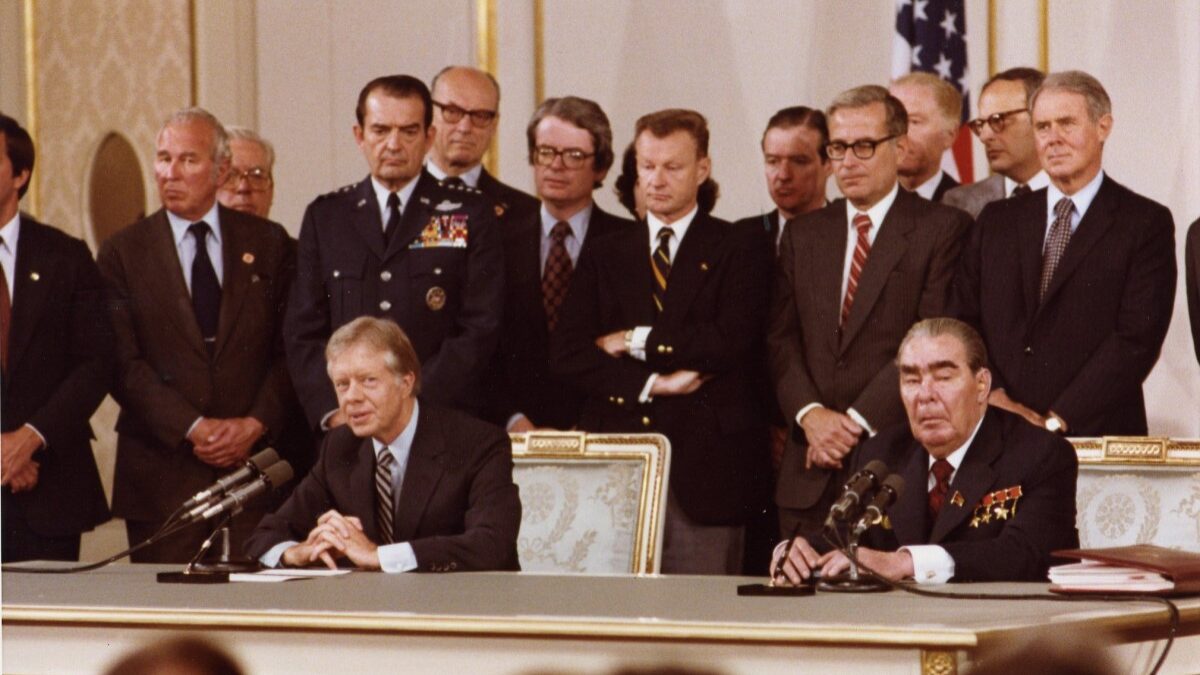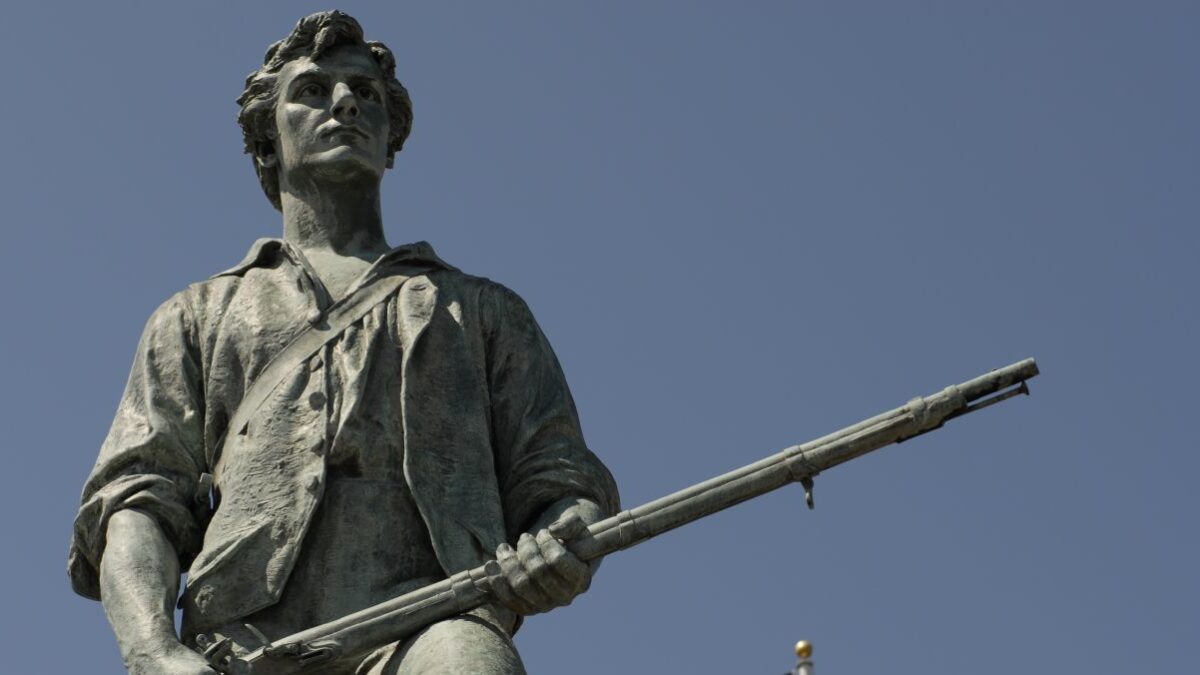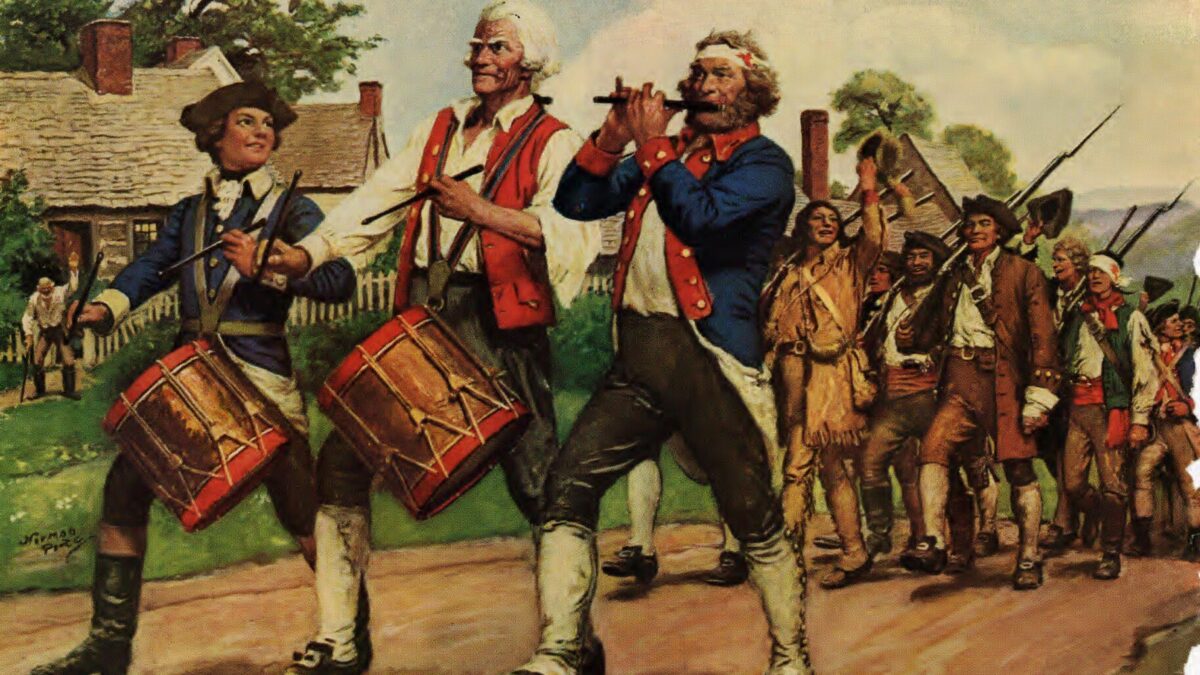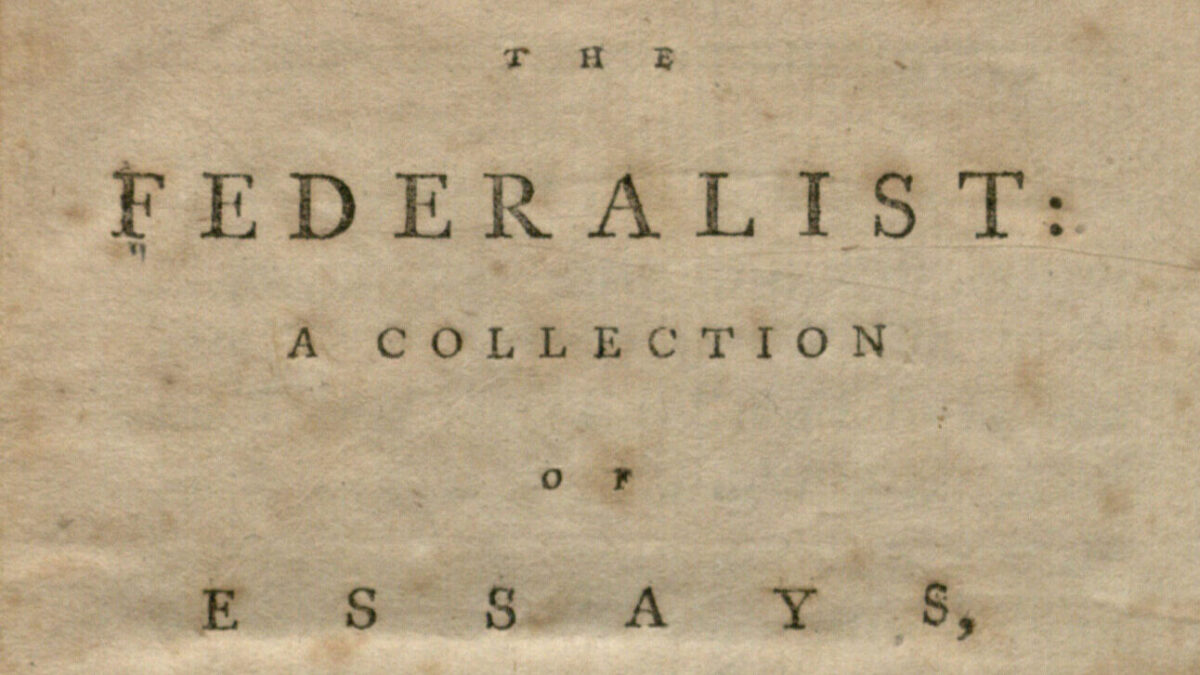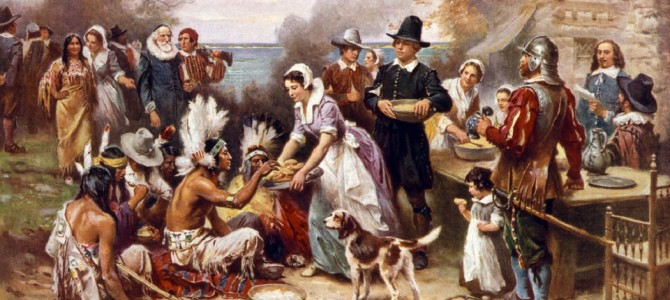
Just as the status of a check-engine light speaks to the soundness of a vehicle, there are indicators throughout society that speak to the soundness of a nation. In a land as vast and populated as ours, with technological advancements once the sole province of science-fiction, it is nearly impossible to count such indicators.
But there is one — simple, short, and easy to read — that clearly reflects the spiritual health of the country: the annual Thanksgiving Day Proclamation.
First, a few clarifications are in order. Giving “thanks” is of course not unique to any particular group of people or geographic location, and expressions of gratitude can take many forms. What has become the American Thanksgiving holiday — aside from packed airports, creepy balloon parades, and political arguments — is really the amalgamation of several traditions: feasting in celebration of a bountiful harvest or military victory, and submitting to God through supplication and praise.
Proclaiming a Day of Thanksgiving
George Washington issued the first presidential proclamation on October 3, 1789, recommending all Americans to set aside November 26 as a “Day of National Thanksgiving.” He and his successors through James Madison issued similar proclamations, but only sparingly and at various times of the year. From 1815 through 1860 there were no thanksgiving proclamations whatsoever.
Abraham Lincoln, who venerated Washington and often followed his example, began issuing proclamations his first year in office. But not until October 3, 1863, the very same day Washington had done 74 years earlier, did the annual tradition begin.
Every president since has issued a Thanksgiving Day proclamation specifically set for the end of November. However, only the title, time of year, and — on a very superficial level — the theme of thankfulness have remained the same.
Indeed, no nation can withstand multiple large-scale wars, advancements in science and technology, and challenges to our understanding of human nature and remain unchanged. Whether mere hints or explicit proofs, you can trace national shifts in these proclamations. Most notable and notorious is the Progressive movement and its emphasis on human-generated moral and spiritual “uplift.”
Since Washington’s proclamation was the first of its kind (and President Obama references it in each of his), it is the legitimate standard by which we can and should assess the 2015 proclamation. Here are three notable differences.
1. In Service of God Versus Service to Others
Throughout his proclamation, Washington focuses on God and our relationship to him. Our duties are clear: “acknowledge His providence,” “obey His will,” “be grateful for His benefits,” “humbly implore His protection and favor,” and seek his “pardon for national and other transgressions.” In short, Thanksgiving should be “devoted by the people of these States to the service of that great and glorious Being who is the beneficent author of all the good that was, that is, or that will be.”
Washington explains that greater freedom for the individual and entire nation will naturally flow from this godly inclination. Of the 432 words comprising his proclamation, he refers to God 15 times. Compare that with only two references in Obama’s, and those were included in quotations taken from Washington and Lincoln. Instead of serving God, Obama wants us to “give of ourselves in service to others.”
In the same spirit of togetherness and thanksgiving that inspired the Pilgrims and the Wampanoag, we pay tribute to people of every background and belief who contribute in their own unique ways to our country’s story. Each of us brings our own traditions, cultures, and recipes to this quintessential American holiday — whether around dinner tables, in soup kitchens, or at home cheering on our favorite sports teams — but we are all united in appreciation of the bounty of our Nation. Let us express our gratitude by welcoming others to our celebrations and recognize those who volunteer today to ensure a dinner is possible for those who might have gone without.
We’ve gone from recognizing God to recognizing volunteers; from submitting to God to submitting to people with different backgrounds and traditions; and from accepting God’s authority to accepting recipes. Soup kitchens? Sports teams? The ineloquent pandering to superficial reasoning and cheap emotions is cringe-inducing.
Authentic thanksgiving requires sacrifice — a relinquishing of both pride and an inordinate focus on the self. Obama’s emphasis on others is merely a veneer, covering the lie that we are at the center and makers of all good things.
2. Executive Versus Legislative Dominance
A subtle but significant change in American politics has been the real and perceived shift in power from the legislative branch to the executive. Constitutionally, Congress has the greatest power among the three branches of government, so when Washington says, “Whereas both Houses of Congress have, by their joint committee, requested me ‘to recommend to the people of the United States a day of public thanksgiving and prayer,’” he is fulfilling his obligation to execute the wishes of Congress. Inclusion, or in most cases the omission of, this reference to Congress indicates that structural shift.
The history of Congress abdicating its constitutional responsibility and delegating much of its power to administrative agencies is fascinating and disheartening. It began in part with Teddy Roosevelt, that early Progressive and firebrand whose presidency pushed for a direct rather than representative democracy embodied in a plebiscitary executive. Obama isn’t the first to omit the reference to Congress in his proclamation, but his is a reminder that the balance of power dips disproportionately in favor of the executive branch.
3. Reflection Versus a Jacked-Up Historical Account
Inherent to Washington’s focus on divine authority is the need for people to reflect on the nation’s successes against what seemed to be insurmountable odds. The purpose of this reflection is to reinforce the link between genuine liberty, wisdom, happiness, and God’s grace. Not so, implies Obama. Instead, we are treated to a highly selective, illogical, and strange historical account and interpretation of Thanksgiving. He begins:
Rooted in a story of generosity and partnership, Thanksgiving offers an opportunity for us to express our gratitude for the gifts we have and to show our appreciation for all we hold dear.
The purpose of Thanksgiving is not about “generosity and partnership” between people. We may experience these as a byproduct of our focus on God, but they certainly aren’t causes. And while the Pilgrims did have good relations with several Indian tribes who did help them better cultivate the land, the colonists helped the Indians as well.
Obama overemphasizes the narrative of Indians-helping-Pilgrims so he can force upon us a redefinition of what it means to give. (If a presidential proclamation can magically turn 9/11 into a day of volunteerism then nothing, not even Thanksgiving, will be safe.) To learn what life was like for the Pilgrims, including their relationships with the various Indian tribes, I recommend checking out William Bradford’s firsthand account in “Of Plymouth Plantation.”
Our nation’s Thanksgiving Day proclamations show both our progress and regress, particularly when you take 2015 and compare it with 1789. Despite our modern achievements, Washington’s America had a greater affinity for and devotion to God and, in turn, to reality.


